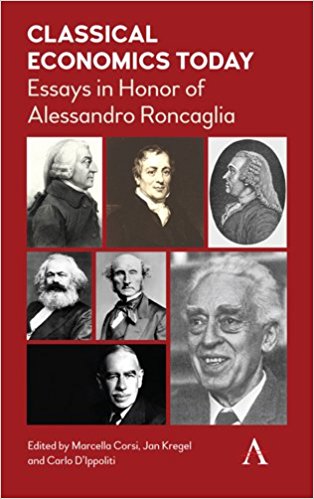The Second International Modern Monetary Theory Conference
The Levy Institute is a cosponsor of the Second International Modern Monetary Theory Conference, which will take place September 28–30 at the New School and will feature Institute scholars L. Randall Wray, Pavlina Tcherneva, Stephanie Kelton, and Mathew Forstater:
Like the first conference, this year will feature contributions from fields as diverse as macroeconomics, law, history, public policy, and corporate finance, with the goal of creating a community of scholars working within the MMT paradigm. This year’s theme, “Public Money, Public Purpose, Public Power,” signals the MMT community’s efforts to build bridges between social justice movements, inspire broad-based participation, and more deeply discuss how our ideas may be concretized politically.
The conference runs from Friday, September 28 through Sunday, September 30. Friday will feature roundtable discussions and keynote addresses from MMT luminaries on the origins of MMT, the process of making MMT “mainstream,” and the relationship between MMT and progressive advocacy for the job guarantee. Saturday will feature workshops facilitated by a range of community leaders and experts seeking to develop and deepen connections between MMT and other fields. Sunday begins with two “town hall” meetings, exploring MMT’s capacity as both a domestic and an international movement. The proceedings will conclude with a plenary session on the strategic and institutional goals of the movement going forward.
To learn more about the Second International MMT Conference or to register, visit their website at mmtconference.org or email [email protected].
Learn more about MMT in these Levy Institute publications: continue reading…







 ShareThis
ShareThis